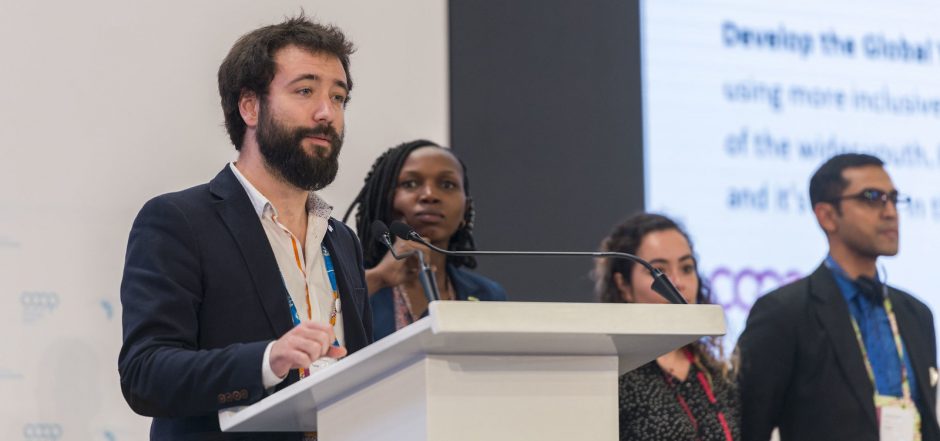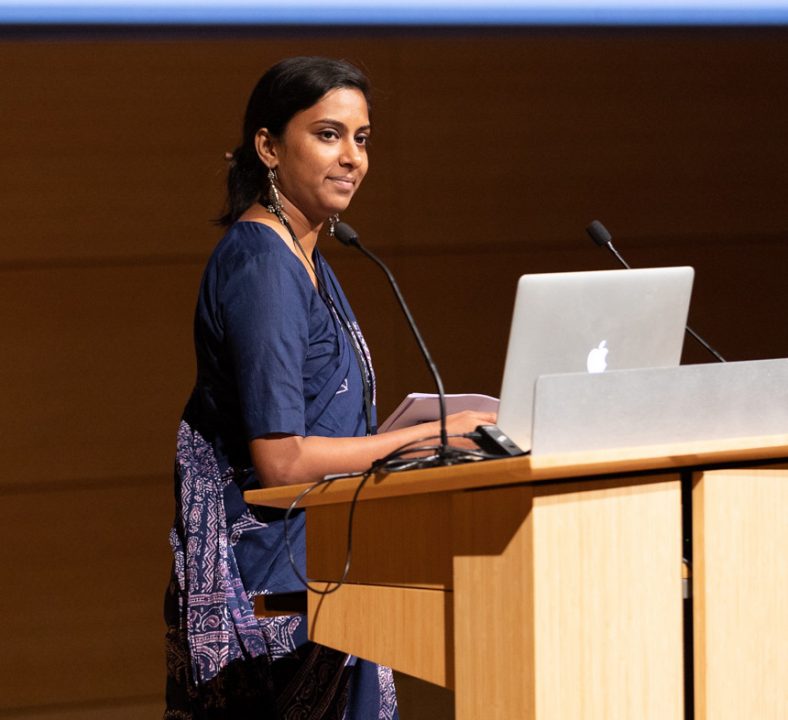The International Cooperative Alliance’s Global Youth Forum drew more than 430 participants around the world for online sessions and workshops on co-operative entrepreneurship.
Running from 25-26 March, the event was organised within the framework of ICA-EU Partnership (#coops4dev) and in collaboration with the ICA Youth Network.
During the opening session Marlene Holzner, head of unit at the European Commission’s Directorate-General International Partnerships (INTPA), talked about the importance of the ICA-EU partnership, which started in 2016.
She said the ICA, as a civil society organisation, played a key role in promoting democracy all over the world while advising governments on policy. Only thriving democracies can tackle inequalities and provide adequate social protections, she said, adding that co-operatives could help the Commission deliver on decent jobs, digitisation and youth entrepreneurship.

ICA president Ariel Guarco also stressed the value of co-operatives as viable business models for the young, referring to a recent report on co-operative youth entrepreneurship: Young people and cooperatives: a perfect match?. Based on direct input from young people from 20 different countries, the report highlights how the co-operative model can empower youth and offer solutions for the main challenges faced by young people worldwide. The recommendations of the report are even more important in the context of the economic recovery after Covid-19, said Mr Guarco.
Related: Ideas to boost industrial and service co-operatives in Asia-Pacific
Sébastien Chaillou, the president of the ICA’s Youth Network, shared his experience as someone who joined the co-operative movement from a civil society organisation. Mr Chaillou joined the Solidarité Etudiante initiative in 2013 with the aim of creating a co-operative focused on helping Paris Sorbonne students self-organise and manage their own services on campus.

“Co-ops can put youth in a situation to act, do, and experience things,” he said, adding that GYF21 aimed to put alternative models of business into the mainstream.
Salonie Muralidhara Hiriyur, senior coordinator at SEWA Federation in India talked about the impact of Covid-19 on youth – particularly women – in her country. Youth unemployment in India has risen from 23.75% in 2020 to 32.5% – while only 13% of women aged 15-24 were employed in 2020.
SEWA’s co-operatives are helping communities to tackle the pandemic by producing vital PPE – and employing young women in the process. Abodana Mandali, a young women’s handicraft co-op, is producing masks, while others are making hand sanitisers.

Ms Muralidhara Hiriyur said public and private investment and mentoring schemes could further drive co-operative entrepreneurship. She praised the ICA’s Youth Replication Project for funding and mentoring youth co-operative projects around the world.
Georgia Papoutsi, policy coordinator for international development for the ICA-EU Partnership Programme, argued that while enabling policies and legislative frameworks played a key role in fostering co-operatives, decision making often starts within local communities. She added that young entrepreneurs needed to engage with people in their communities and neighbourhoods to come up with solutions together.
“We need to emphasise to those who create start-ups that if they want to achieve a great social impact then the co-op is the right model,” added Mr Chaillou.
This article has been amended to reflect that the ICA-EU Partnership started in 2016, not 2015 and to clarify Marlene Holzner’s role as the head of unit at the European Commission’s Directorate-General International Partnerships (INTPA). An earlier version also referenced a youth report by ICA-AP and Cicopa instead of ICA’s report Young people and cooperatives: a perfect match?.

